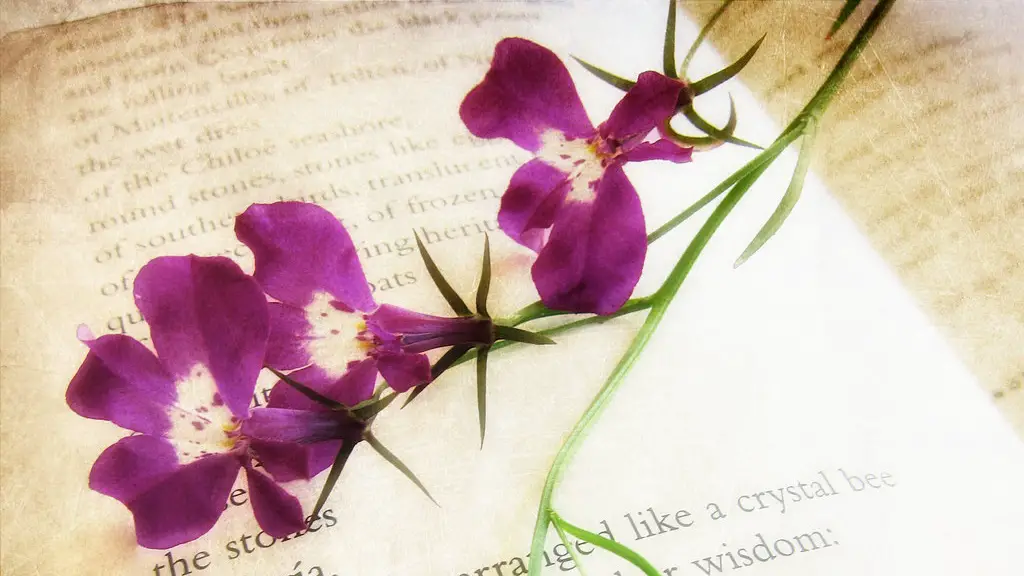Creating an Atmosphere of Writing
Poetry can be an elusive, enigmatic art form that takes meticulous planning and practice to hone. Writing poetry can be a battle, but with the right guidance and enthusiasm, it doesn’t have to be. Beginner poets should strive to find a place where they can write with freedom and focus. This can be difficult, as it requires solace and is not easy to come by in a bustling world. Seek to remove the distraction of the external and concentrate on the inner self that can tap into the soul of a poet. Isolation, in a secluded place, provides this kind of space but it isn’t essential to writing poetry.
Analyse the environment that creates the right mood to write poetry. Pay attention to the tones, smells, sights and sounds that inspire. Ensure that the place of writing is comfortable and peaceful, allowing the mind and body to relax. Engross yourself in the sound of birds, the colours of nature, the feel of the wind and the smell of the air. Drawing from the beauty that the world has to offer can help shape the words of the poem. Previously discovered comfort locations can help ease stress, as familiarity is known to provide a sense of peace. Placing objectives and boundaries on what kind of poem needs to be written can also provide inspiration and motivation.
Formulating a Topic and Style
Writing poetry does not require a prescribed subject or style. Give yourself the freedom to explore different themes, topics and methods. Keeping a personal journal or notebook can provide a platform to express emotions, thoughts, worries and memories. Ideas and musings can be captured and implemented into poems. A collection of gathered inspiration can require effort to consolidate, but provides the possibility of expressing multiple qualities.
Focusing on a particular subject is not essential but can offer clarity and purpose to the poem. It can be helpful to decide how the poet will approach the writing. Taking influence from a specific style or genre can help focus on the emotions needed to convey. Researching the work of established poets can inform the journey of writing, finding poetic methods that work for the individual. Exploring the contexts and techniques of experienced poets can inspire to create something that holds its own meaning and form.
Putting the Pen to Paper
Writing poetry can become a form of meditation, embracing the solace of the moment and allowing creativity to flourish. Taking regular pauses and allowing thoughts and ideas to develop can create a poetic flow. Writing for short periods and then coming back to review can help gain perspective on the material. Editing will be inevitable; self-imposed enough to provide new paths and evolution in the poem. This will bring it closer to the true state desired in the beginning of the process.
Look to include rhymes, metaphors, personification and alliteration to make the poem more vivid and engaging. Work carefully to interpret the words selected in order to correctly convey the story. Pay attention to the rhythm and energy of the poem. Use emotion when creating the language that intensifies the atmosphere and expresses the necessary feeling. It is essential to pay attention to the small details, as they will give the poem the character and heart it needs to come alive. A poet that is passionate and authentic in her writing will be heard and appreciated.
Bringing the Poem to Life
So the poem is complete and needs to be polished. Challenge the poem with honest eyes and review its structure, syntax, line lengths and rhyme. Take out the boring bits, add the missing ones and bring to light the lines that truly stand out. It is better to challenge the material and compare it to the frame of what the poem should be. Testing the poem with friends can help to open new paths and unearth hidden gems in the verses.
Practice is the key to perfection, so never stop writing. Review, rewrite and revisit previously composed pieces. Reading poetry that is already written can fuel creative ideas and make one more aware of the types of devices used by other poets. Keep a lookout for poets that may have messages of its own importance, allowing the individual to draw from these interpretations and create a personalised version of it.
Living the Experiences in a Poem
Writing about a certain occurrence can capture the emotions present. This personal connection can bring life to the poem, conveying the feelings and messages with beauty and grace. Let personal experiences be the launch pad for a majestic poetry splurge. Express in detail the events as they unfolded, elaborating on the context and tone of the moment. Allow frustrations, joys and fears to take shape in a ballad.
It can be helpful to look back at old letters and journals that may evoke long forgotten memories. Journaling helps to revive a moment in time and feel the emotions once again. Assemble the events in a chronological fashion and scrutinize what message and emotions laid beneath it. Describe the pace and use of a particular piece of the story and provide an insight into the significance of the events that took place.
Reconsidering the Challenges in a Poem
Writing about challenges in life can help to map the fears and encourage to push through intimidating situations. Describe and create feelings of empowerment and courage, to provide encouragement and empowerment to others. Put the story into language that will help the readers feel the power of overcoming the obstacles. Bring attention to the way that the individual faced the challenge and the emotions encountered throughout the journey.
Celebrate the successes, quote the words of strength that guided the poet on their path. Point out the importance of courage and bravery in order to come out at the other end victorious. Reflect on the relationship built with the experience and the way it changed the individual. The key is to learn the lessons and use them to transform the poem into an inspiring story.
Using Memories as a Spark of Inspiration
Memories play an important role when it comes to writing poetry. Reflecting on past memories can create a powerful message, as memories can evoke powerful emotions that can be creatively expressed in a safe environment. Listen to the voices of the past, grabbing significant moments and explore how they can be described in poems. Choose moments that have had an important impact on the individual, as they often become a metaphor for what had happened.
Take time to remember the smells, tones, sights and sounds that were present in that time. Capture the feelings that were experienced and learn to adapt them into the poetic verse. Explore the personal encounters experienced and ask why the event was so important in the individual’s life. Open up to what was seen and felt and try to capture it in the words of the poem.
Drawing Strength from Resilience
Writing about resilience can provide comfort, understanding and trust in the difficult moments. It can give the individual time and space to come to terms with what has happened. Capture the strength that comes from getting through the struggles and celebrate the courage that has been displayed during the duration of the journey.
Write about the triumphant moments, giving birth to a space that can motivate and energise. Bring out the strength and beauty of courage, illustrating the power attached to the term resilience. There will always be something that can be learned and explored when writing a poem about a struggle or an experience. Share the message of trial and success to encourage others to never give up.
Exploring the Wonders of Nature in Poetry
Nature is often undervalued and taken for granted, so taking the time to write about and appreciate its beauty with poetic words can be powerful. Explore the wonders of the world with vivid descriptions in a rhythmic pattern, making it come alive on paper. Focus on the marvellous scenes to be seen in the natural world. From the quality of light to the sound of the breeze, it can be used to create a powerful image in the readers imagination.
Choose topics that are both expansive and intimate; explore unknown vistas, mountainous heights and why, for example, the sun rises every day. Look for the small details, the magical moments and the awe-inspiring scenery that the natural world provides. Put all these elements together to convey the grandeur of nature with emotional triggers and advanced grammatical structures, whilst avoiding passive voice.
Harnessing the Power of Friendship in a Poem
Friendship can be a powerful message that can be explored through poetry. Friendships rely on communication, understanding and trust, so, translating it into poetic language can be a challenge. Capture the moments that define a friendship, providing an insight into the connection shared and the way it evolves through life.
Explore the stages of a friendships development; from the first meeting, the sharing of secrets to the making of memories. Highlight the powers of encouragement and support that are provided by friendship. Show gratitude and the importance of friends without fear. Discuss the strengthening of character that comes from being around a particular individual.
Coming Out Victorious in Poetry
Writing poetry about strength and victory is a powerful message that can inspire others. Approach it with positive and uplifting energy, such as using metaphors as a representation of getting through a challenging time. Celebrate the triumphs and point out the journey taken to get to that point. Give credits for refusing to be held back, for believing and trusting in the task and for having the courage to succeed.
Celebrate the growing and development of the individual and the ability to face challenges with courage. Congratulate the progress made and share insights on the importance of the accomplishment. Acknowledge and appreciate the hard work that was put in and the merits deserved for coming out victorious. Express the joy and beauty of victory with the help of powerful imagery, that will convey the message of success.


